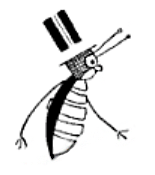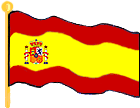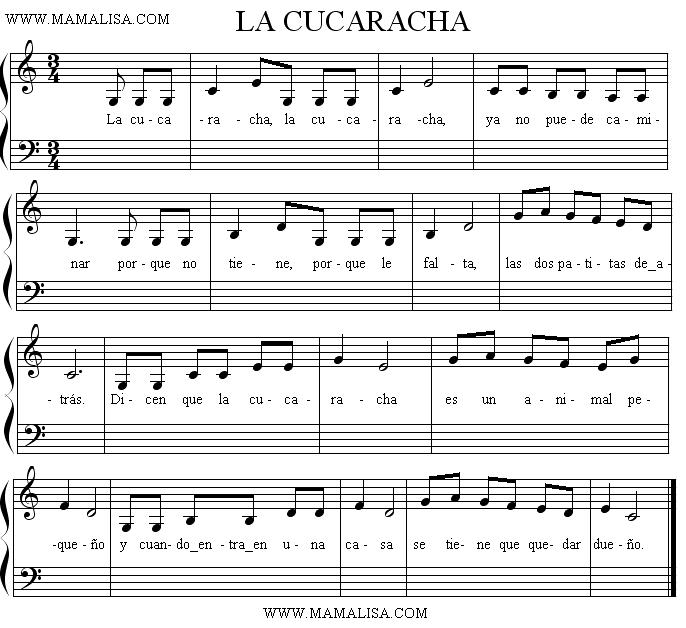La cucaracha
This version of La cucaracha is perfect for kids!

La cucaracha
The Cockroach
Canción tradicional
Traditional Song
(Spanish)
(English)
(Coro)
La cucaracha, la cucaracha,
ya no puede caminar
porque no tiene,
porque le falta
las dos patitas de atrás.
Dicen que la cucaracha
Es un animal pequeño
Y cuando entra en una casa
Se tiene que quedar dueño.
(Coro)
Cuando uno quiere a una
Y esta una no lo quiere,
Es lo mismo que si un calvo
En la calle encuentra un peine
(Coro)
Mi vecina de ahí enfrente
Se llamaba Doña Clara,
Y si no se hubiera muerto
Aún así se llamara.
(Coro)
Cuando Rita se bañaba
En el río San Fernando
Le picó la cucaracha
Pero ella siguió nadando.
(Coro)
(Chorus)
The cockroach, the cockroach,
Can't walk anymore
Because it doesn't have,
Because it's missing
Two little back legs.
People they say the cockroach
Is a very small animal
And when it gets into a house,
It'll soon be the master of it all.
(Chorus)
When a boy loves a girl
And she doesn't love him back
It's the same as if a bald man
Finds a comb on the railroad track*.
(Chorus)
My neighbor across the street
Had Lady Claire as her name
And if she hadn't died
She still would be called the same.
(Chorus)
When Rita was bathing
In the San Fernando River
The cockroach stung her
But she kept on swimming.
(Chorus)
Notes
*Literally "in the street"
This song originated in Spain and some verses are said to go back to the Reconquista times (Middle Ages), but the Mexican Revolution made it famous world-wide. There are many variations. Individuals add their own verses. Some verses were invented to illustrate events, some people's moods or for the humor of it.
Comments
Monique wrote, "I remember my mom singing the first and last verses given here. I don't know where she learned them from and she doesn't remember either."


Thanks!
Thanks!
Thanks and Acknowledgements
Many thanks to Monique Palomares for contributing the chorus and the first and last verses to this song, and for the translation (with Lisa).
Image: Cartoons Magazine, Volume 9, Issue 5 (1916).
¡Muchas gracias!


























